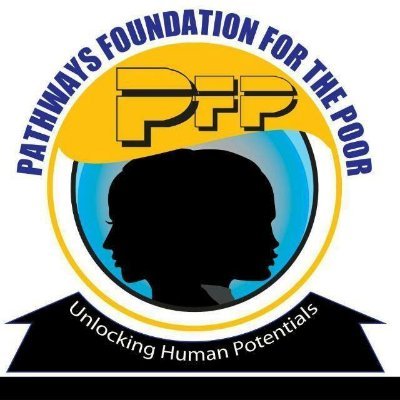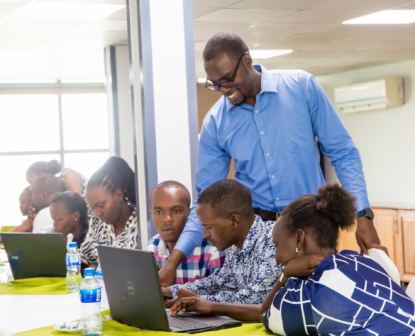Project
Bodaboda youth empowerment
-
Amount Funded
24,959 EUROProject Duration
01 Oct 2019 - 30 Sep 2020 -
-
Lead organisation
Pathways Foundation for the Poor (PFP)
-
Pathways Foundation for the Poor (PFP) is a newly registered organisation that works with local communities using the members’ contributions. PFP works with groups of young women and young men in income generating activities. PFP is experienced in organising and training groups to have confidence in exercising their rights through participation in political processes. PFP also focuses on awareness creation for engagement in planning forums structured in the local government systems and sensitisation on strategic involvement in political processes; so that at the end of the day young women and men have a better representation of the right leaders who can represent others and have accountability.
In 2017, practical training was also conducted to 20 members of Tumaini women group to equip them with necessary skills in the designing and processing of Batik clothing as part of an income-generating activity in Bunju ward. PFP worked with its partner MIBOSCO to build and strengthen capacities of 120 young girls in Kunduchi and Tegeta wards. Through community mobilisation, 120 girls from poor and vulnerable families showed interest to enroll in the tailoring training sessions conducted at Kunduchi Mtongani area.
-
Organisation
Pathways Foundation for the Poor (PFP) is a newly registered organisation that works with local communities using the members’ contributions. PFP works with groups of young women and young men in income generating activities. PFP is experienced in organising and training groups to have confidence in exercising their rights through participation in political processes. PFP also focuses on awareness creation for engagement in planning forums structured in the local government systems and sensitisation on strategic involvement in political processes; so that at the end of the day young women and men have a better representation of the right leaders who can represent others and have accountability.
In 2017, practical training was also conducted to 20 members of Tumaini women group to equip them with necessary skills in the designing and processing of Batik clothing as part of an income-generating activity in Bunju ward. PFP worked with its partner MIBOSCO to build and strengthen capacities of 120 young girls in Kunduchi and Tegeta wards. Through community mobilisation, 120 girls from poor and vulnerable families showed interest to enroll in the tailoring training sessions conducted at Kunduchi Mtongani area.
-
Project
The bodaboda (motorcycle) youth empowerment project establishes learning platforms as an avenue to allow learning on government policy, procedures and principles, safety, leadership, confidence and increase self-esteem to bring about change by mainstreaming leaders with bodaboda backgrounds in decision making positions; to raise their voice and represent the majority by presenting issues affecting them. Since the bodaboda are growing in numbers there is need to have leaders who can represent them; those who are honest, have integrity, are good communicators, committed and accountable and have abilities to make decisions and influence others using negotiating skills.
The project develops advocacy messages for change that are disseminated by Bodaboda drivers through various methods including wearing reflectors with advocacy messages and use of stickers with advocacy messages that are put on their bodaboda and any other public places. The project also strengthens the capacity of bodaboda youth in leadership and confidence skills as well as promoting their civil and political participation in order to have representation in the decision making institutions for addressing their issues of concern.
-
-
The bodaboda (motorcycle) youth empowerment project establishes learning platforms as an avenue to allow learning on government policy, procedures and principles, safety, leadership, confidence and increase self-esteem to bring about change by mainstreaming leaders with bodaboda backgrounds in decision making positions; to raise their voice and represent the majority by presenting issues affecting them. Since the bodaboda are growing in numbers there is need to have leaders who can represent them; those who are honest, have integrity, are good communicators, committed and accountable and have abilities to make decisions and influence others using negotiating skills.
The project develops advocacy messages for change that are disseminated by Bodaboda drivers through various methods including wearing reflectors with advocacy messages and use of stickers with advocacy messages that are put on their bodaboda and any other public places. The project also strengthens the capacity of bodaboda youth in leadership and confidence skills as well as promoting their civil and political participation in order to have representation in the decision making institutions for addressing their issues of concern.
-
Boda Boda (Cycle Taxi operators) provide a very crucial link in the transportation sector and hence play a significant economic role. The informal organic nature with which the sector grew meant that there exist little partnerships with other stakeholders in the transport sector as well as with government who are expected to provide a regulatory function. The informality also means that he Boda Boda are unable to access banking services. The numbers of individuals involved in the sector also called for leadership skills to bring the riders together so that they can play a role in civic governance and also manage themselves. This awareness would also minimize the abuse and taking advantage of the sector mainly by politicians.
The project has engaged 2671 rightsholders and stakeholders; these include 2590 Boda boda riders and their Associations leaders, and 81 other stakeholders such as government officials, institutions and private companies.
The project helped build a strong partnership between the Boda boda Associations and the government and private institutions like banks through various activities facilitated by the project. Strengthening these relationships helped resolve challenges Boda boda drivers and associations face by involving government officials and private stakeholders. Improving these relationships was Pathways Foundation for The Poor (PFP), the most outstanding achievement during the project because the partnerships formed continue even after the project implementation period is over.
PFP carried out capacity building sessions that increased participants’ leadership skills, confidence, lobbying and advocacy skills. The enhanced capacities allowed them to address existing challenges faced by the boda boda associations. As a result, ten Boda boda association leaders were trained, enabling three to register their associations with the Ministry of Home Affairs (MoHA). Registering with MoHA allowed them access to loans with low-interest rates which in turn enabled them to buy motorcycles. Also, due to the capacity building sessions, the Maendeleo Boda boda Group managed to buy three motorcycles during the project implementation period.
Through capacity building and advocacy, Segerea Boda boda Association (SEBOA) saw a need to acquire Health Insurance for their members. SEBOA requested PFP to connect them with organisations that could assist with this. PFP linked them with responsible organisations such as National Microfinance Bank (NMB) and CRDB Bank Plc. Towards the end of the project, SEBO had registered 100 members.
In the future PFP is looking forward to scaling up the project by supporting registered Boda boda youth to receive financial support from financial institutions and connect them to TANROADS to receive training on traffic rules and regulations to reduce road accidents.
- News




